Movie "Baahubali" (2015) can indeed be analyzed using transactional analysis concepts. While it is an epic historical fiction film, it showcases various interpersonal relationships and dynamics that can be explored through the lens of transactional analysis. Here are some aspects of the movie that can be analyzed:
1. Ego States: The protagonist, Baahubali, exhibits different ego states throughout the movie. His interactions with other characters, such as his mother Sivagami and his love interest Devasena, can be analyzed to understand the ego states at play.
2. Transactional Patterns: The movie portrays several transactions, including complementary transactions, crossed transactions, and ulterior transactions. Analyzing these patterns can reveal the dynamics and conflicts between different characters.
3. Psychological Games: The characters in "Baahubali" engage in various psychological games, such as power struggles, manipulation, and hidden agendas. These games can be analyzed to understand the underlying motivations and implications.
4. Parent-Child Interactions: The relationship between Baahubali and Sivagami, who acts as a surrogate parent to him, can be examined from a transactional analysis perspective. This exploration can shed light on the power dynamics, role expectations, and emotional dynamics between the two characters.
5. Personal Growth and Change: The character development and personal growth of Baahubali provide an interesting opportunity for analyzing how ego states and transactional patterns evolve over time.
When analyzing "Baahubali" using transactional analysis, pay attention to the communication patterns, ego states, and transactional dynamics portrayed by the characters. Look for examples of overlapping or conflicting ego states, transactional shifts, and the consequential impact on the storyline and relationships.
In the movie "Baahubali," the character Amarendra Baahubali goes through various transactional analysis states or ego states, which are different patterns of thoughts, feelings, and behaviors. Here are the different ego states exhibited by Amarendra Baahubali in the movie:
1. Adult Ego State: The adult ego state represents rationality, logic, and objective thinking. Amarendra Baahubali often displays this ego state when making strategic decisions, discussing plans, or solving problems. For example, when he plans the war strategies against the antagonist Bhallaladeva.
2. Parent Ego State: The parent ego state represents values, beliefs, and rules learned from parental figures or authority figures. Amarendra Baahubali exhibits this ego state when he takes on the role of a leader, protector, and guide to the people of Mahishmati. He displays empathy, wisdom, and authority when interacting with the kingdom's subjects.
3. Child Ego State: The child ego state represents spontaneous and emotional aspects of an individual. Amarendra Baahubali showcases this ego state during his interactions with his love interest, Devasena. He displays childlike innocence, playfulness, and vulnerability. His interactions with Devasena demonstrate a nurturing and tender side of his personality.
Additionally, the movie also delves into the concept of the "shadow ego state," which represents the darker and more unconscious aspects of an individual's personality. The shadow ego state is not a traditional concept in transactional analysis but can be observed in the characters' behaviors. For instance, when Amarendra Baahubali discovers the truth about his parentage and confronts Bhallaladeva, he displays anger, aggression, and a vengeful attitude. These darker emotions represent the shadow ego state.
It is important to note that analyzing ego states in characters is subjective, and interpretations may vary. The movie "Baahubali" offers a rich narrative with complex characters, allowing for diverse interpretations and analysis from the perspective of transactional analysis.
In the movie "Baahubali," Mahendra Baahubali, also known as Shivudu or Mahendra Baahubali, is the son of Amarendra Baahubali and goes through various transactional analysis states or ego states. Here are the different ego states exhibited by Mahendra Baahubali in the movie:
1. Child Ego State: The child ego state represents spontaneous and emotional aspects of an individual. Mahendra Baahubali often displays this ego state early in the movie when he is portrayed as a carefree and adventurous tribal person. He is shown climbing mountains, playing with waterfalls, and engaging in playful activities. This ego state reflects his curiosity, enthusiasm, and zest for life.
2. Adult Ego State: The adult ego state represents rationality, logic, and objective thinking. As the movie progresses, Mahendra Baahubali matures and acquires a strategic mindset. He starts making decisions based on reasoning, planning, and assessing risks. For instance, when he formulates a plan to overthrow the antagonist Bhallaladeva and reclaim the throne of Mahishmati, he demonstrates his adult ego state by carefully analyzing the situation and devising prudent strategies.
3. Parent Ego State: The parent ego state represents values, beliefs, and rules learned from parental figures or authority figures. Mahendra Baahubali exhibits this ego state towards the end of the movie when he takes on the role of a leader and becomes the rightful heir to the throne. He embodies the qualities of his deceased father, Amarendra Baahubali, by leading with integrity, compassion, and justice. He also gains the respect and loyalty of his subjects, displaying authority from the parent ego state.
Similar to Amarendra Baahubali, Mahendra Baahubali's character also embodies the shadow ego state when he confronts Bhallaladeva for his past actions and his role in the death of his father. He experiences anger and seeks vengeance, portraying the darker and more unconscious aspects of his personality.
It's important to note that analyzing ego states in characters is subjective, and interpretations may vary. The movie "Baahubali" offers a robust storyline with multifaceted characters, fostering different interpretations and analyses from the perspective of transactional analysis.
In the movie "Baahubali," Sivagami Devi plays a crucial role as the queen mother of Mahishmati and exhibits various transactional analysis states or ego states. Here are the different ego states displayed by Sivagami Devi in the movie:
1. Adult Ego State: The adult ego state represents rationality, logic, and objective thinking. Sivagami Devi is shown to possess a strong and strategic mindset. As the queen mother, she takes crucial decisions for the kingdom based on careful analysis, reasoning, and the welfare of her subjects. Her adult ego state is demonstrated when she selects Amarendra Baahubali as the future king of Mahishmati, considering his virtues and abilities. This decision is driven by her objective assessment of Amarendra's leadership potential rather than emotional biases.
2. Parent Ego State: The parent ego state represents values, beliefs, and rules learned from parental figures or authority figures. Sivagami Devi embodies this ego state as the authoritative queen and guardian of the kingdom. She imposes her strict moral code and values on Amarendra Baahubali and maintains a strong sense of discipline in the kingdom. Her parent ego state is evident when she reprimands and scolds her subjects or even her own son, Bhallaladeva, for not adhering to her expectations or committing wrongdoing.
3. Child Ego State: The child ego state represents spontaneous and emotional aspects of an individual. Though rarely displayed, Sivagami Devi's child ego state is seen in moments of vulnerability or tenderness. This includes her attachment to Mahendra Baahubali, whom she raises as her own grandson, and her protective nature towards him. In these instances, her tough exterior softens, revealing a more nurturing and affectionate side.
4. Controlling and Critical Parent Ego State: This ego state represents a controlling, authoritarian, and judgmental attitude towards others. While Sivagami Devi's parent ego state is primarily positive, she also possesses a controlling and critical parent ego state, particularly when it comes to enforcing discipline or maintaining order. This ego state is seen in her relationship with Bhallaladeva, where she constantly criticizes and compares him to Amarendra Baahubali, which contributes to Bhallaladeva's resentment and bitterness.
It's important to note that analyzing ego states in characters is subjective, and interpretations may vary. Sivagami Devi's character in "Baahubali" is multi-dimensional, and her ego states play a significant role in shaping the storyline and character dynamics.
In the movie "Baahubali," Bhallaladeva, the elder son of Sivagami Devi, showcases different transactional analysis states or ego states throughout the storyline. Here are the various ego states displayed by Bhallaladeva:
1. Adapted Child Ego State: The Adapted Child ego state represents compliance, obedience, and adherence to rules and norms set by authority figures. Bhallaladeva's character exemplifies this ego state as he consistently follows his mother's commands and conforms to her expectations. He seeks Sivagami Devi's approval and strives to be the ideal son and future king, which influences his behavior and decision-making.
2. Rebellious Child Ego State: The Rebellious Child ego state represents defiance, resistance, and opposition to authority. Although less prominent in Bhallaladeva's character, there are moments when he exhibits this ego state. For instance, when he learns about Sivagami Devi's decision to make Amarendra Baahubali the future king, he becomes resentful and rebellious. His desire to attain power and the throne for himself drives him to orchestrate schemes and indulge in nefarious acts.
3. Controlling and Critical Parent Ego State: The Controlling and Critical Parent ego state represents a tendency to impose regulations, criticize others, and assert authority. Bhallaladeva's character showcases this ego state in the way he treats and governs his subjects. He uses oppressive measures and intimidates people, portraying a controlling and authoritarian figure.
4. Nurturing Parent Ego State: The Nurturing Parent ego state represents care, comfort, and support. Bhallaladeva seldom displays this ego state, as he is primarily driven by his ambitions and desires for power. However, there are fleeting moments when he exhibits glimpses of care and concern, particularly towards his son, Bhadra. Despite his flaws, Bhallaladeva demonstrates a sense of protectiveness when it comes to his family.
5. Adult Ego State: The Adult ego state represents rationality, logic, and objective thinking. Bhallaladeva's character rarely exhibits this ego state throughout the movie, as his actions and decisions are primarily fueled by his emotions and ambitions rather than objective reasoning. However, there are instances, particularly during discussions and debates, where he demonstrates a more rational and logical approach.
It should be noted that analyzing ego states in characters is subjective, and interpretations may vary. Bhallaladeva's character is complex and multidimensional, and his ego states play a pivotal role in illustrating his motivations, actions, and conflicts within the storyline.
In the movie "Baahubali," Deva Sena, the princess of Mahishmati kingdom, also showcases different transactional analysis states or ego states throughout the storyline. Here are the various ego states displayed by Deva Sena:
1. Free Child Ego State: The Free Child ego state represents spontaneity, creativity, and emotions. Deva Sena's character embodies this ego state frequently, where she displays her emotions openly and without restraint. She is known for her independent and free-spirited nature, often challenging societal norms and expectations. Deva Sena's carefree nature is evident in her interactions with Amarendra Baahubali and her refusal to conform to traditional gender roles.
2. Rebellious Child Ego State: The Rebellious Child ego state represents defiance, resistance, and opposition to authority. Deva Sena's character occasionally exhibits this ego state, particularly when she challenges her cousin Bhallaladeva's authority and refuses to obey his commands. Her strong-willed nature drives her to rebel against oppressive forces and fight for justice.
3. Nurturing Parent Ego State: The Nurturing Parent ego state represents care, comfort, and support. Deva Sena's character embodies this ego state as she displays compassion and nurturance towards the people of Mahishmati. She is shown caring for the less fortunate, protecting the innocent, and advocating for their rights. Deva Sena's nurturing nature is especially evident in her interactions with Amarendra Baahubali and her willingness to sacrifice for the greater good.
4. Adaptive Adult Ego State: The Adaptive Adult ego state represents rationality, logic, and adaptability. Deva Sena's character shows glimpses of this ego state, particularly when she engages in discussions and decision-making processes. She considers different perspectives and weighs the consequences before taking action. Deva Sena's ability to think analytically and make informed choices showcases her Adaptive Adult ego state.
5. Controlling and Critical Parent Ego State: The Controlling and Critical Parent ego state represents a tendency to impose regulations, criticize others, and assert authority. While Deva Sena's character mostly portrays nurturing and free-spirited ego states, there are moments when she displays a Controlling and Critical Parent ego state. This occurs mainly during confrontations with Bhallaladeva, where she criticizes and challenges his rule.
It should be noted that analyzing ego states in characters is subjective, and interpretations may vary. Deva Sena's character in "Baahubali" is depicted as a strong, independent woman who exhibits a range of ego states. These ego states shape her personality, actions, and relationships within the storyline.
In the movie "Baahubali," Kattappa is a loyal servant and warrior who serves the kingdom of Mahishmati with utmost dedication. His character exhibits several transactional analysis states or ego states throughout the film. Let's explore the different ego states displayed by Kattappa:
1. Nurturing Parent Ego State: The Nurturing Parent ego state represents care, support, and guidance. Kattappa embodies this ego state as he fulfills his duty to protect and support the royal family of Mahishmati, specifically serving as a guardian to Amarendra Baahubali. He displays love, concern, and devotion towards Baahubali and treats him as his own son, providing guidance and support whenever needed.
2. Controlling Parent Ego State: The Controlling Parent ego state represents a tendency to impose regulations, criticize, and assert authority. Although Kattappa's character displays more traits of the Nurturing Parent ego state, he occasionally switches to the Controlling Parent ego state when it comes to ensuring the safety and security of the kingdom. As a warrior and loyalist, he asserts authority and takes control during battles, making tactical decisions to protect Mahishmati and its rulers.
3. Adaptive Adult Ego State: The Adaptive Adult ego state represents rationality, logic, and adaptability. Kattappa predominantly exhibits this ego state throughout the film, as his primary role is to provide wisdom, counsel, and strategic planning. He often displays his intelligence and resourcefulness to overcome challenges and protect the kingdom. Kattappa's Adaptive Adult ego state helps him make rational decisions, analyze situations, and adapt to changing circumstances.
4. Rescuing Child Ego State: The Rescuing Child ego state represents a desire to help others, often going above and beyond to offer support or save someone from harm. Kattappa's character occasionally exhibits this ego state, particularly when it comes to his relationship with Amarendra Baahubali. He goes to great lengths to protect Baahubali, even putting his own life at risk. Kattappa's strong sense of duty and loyalty towards the royal family drives him to act as a rescuer and savior.
It's important to note that these ego states are fluid and can change depending on the context and the situation. Kattappa's character in "Baahubali" predominantly embodies the Nurturing Parent and Adaptive Adult ego states, showcasing his loyalty, guidance, and strategic thinking. His actions, motivations, and relationships with other characters are heavily influenced by these ego states, making him an integral and trusted member of the Mahishmati kingdom.
Here are some Tamil movies that can be analyzed using transactional analysis concepts:
Tamil
1. "Anbe Sivam" (2003) - This film explores the deep bond and growth in a relationship between two contrasting characters, highlighting complementary and crossed transactions.
2. "Aadukalam" (2011) - The movie showcases power struggles, ego states, and manipulative transactions within the context of cockfighting and a village community.
3. "Kaakka Muttai" (2014) - This heartwarming film addresses complex parent-child interactions, ego states, and social transactional dynamics through the perspectives of two young boys.
4. "Rhythm" (2000) - The story revolves around two individuals with contrasting personalities and their emotional journey, touching upon concepts of ego states and emotional transactions.
5. "Papanasam" (2015) - This crime thriller exhibits different transactional patterns involving family members during a crisis, including complimentary, crossed, and ulterior transactions.
While analyzing these movies, focus on identifying the communication patterns, ego states, and complementary or crossed transactions between the characters. Remember that transactional analysis is a framework for understanding human behavior, and these films can provide valuable illustrations and discussions that delve into transactional dynamics.
Here are some Hindi movies that can be analyzed using transactional analysis concepts:
Hindi
1. "Chupke Chupke" (1975) - This comedy film explores the dynamics of ego states and transactions within a family setup, especially through a prank played by a professor.
2. "Kapoor & Sons" (2016) - The movie showcases complex family relationships, sibling rivalries, and transactional dynamics, as family members navigate through love, secrets, and conflicts.
3. "Kabhi Khushi Kabhie Gham" (2001) - This family drama highlights different ego states and transactional patterns between family members, addressing themes of love, acceptance, and hierarchy.
4. "Tamasha" (2015) - The film delves into the struggle between conformity and self-expression, touching upon ego states, crossed transactions, and the search for personal identity.
5. "Queen" (2013) - This coming-of-age film explores the protagonist's journey of self-discovery, ego state transformations, and transactional dynamics as she navigates through unfamiliar territories.
While analyzing these movies, pay attention to the communication patterns, ego states, and transactional dynamics portrayed by the characters. They provide excellent material for discussions surrounding transactional analysis concepts and how they play out in various relationships and situations.
Here are some Telugu movies that can be analyzed using transactional analysis concepts:
Telugu
1. "A Aa" (2016) - This romantic comedy-drama revolves around the relationship dynamics between the characters and can be analyzed for ego states and transactional patterns.
2. "Arjun Reddy" (2017) - This intense drama explores the protagonist's journey through various ego states and transactional dynamics in love, relationships, and personal growth.
3. "Mathu Vadalara" (2019) - This crime-comedy movie can be analyzed for its depiction of ego states, crossed transactions, and interpersonal dynamics in a high-stress situation.
4. "Jersey" (2019) - This sports drama delves into the protagonist's journey of self-discovery and ego state transformations that occur as he pursues his dreams and faces challenges.
5. "Manam" (2014) - This multigenerational fantasy drama showcases complex family dynamics, ego states, and transactional patterns in the context of reincarnation and love.
When analyzing these movies, observe the communication patterns, ego states, and transactional dynamics portrayed by the characters. These films provide interesting material for discussions on transactional analysis and how it applies to various relationships and life situations.
Malayalam
Here are some Malayalam movies that can be analyzed using transactional analysis concepts:
1. "Drishyam" (2013) - This thriller film can be analyzed for its depiction of ego states, crossed transactions, and the manipulative tactics used by the characters.
2. "Bangalore Days" (2014) - This romantic drama explores the complex interpersonal dynamics and transactional patterns among a group of friends living in Bangalore.
3. "Premam" (2015) - This coming-of-age romantic drama showcases the protagonist's journey through different ego states and transactional dynamics in love and relationships.
4. "Charlie" (2015) - This romantic mystery movie can be analyzed for its portrayal of ego states, transactional patterns, and how the characters' interactions shape their personal growth.
5. "Maheshinte Prathikaaram" (2016) - This comedy-drama highlights the protagonist's transformation, ego state shifts, and transactional dynamics as he seeks revenge for a humiliating incident.
When analyzing these movies, pay attention to the communication styles, ego states, and transactional dynamics displayed by the characters. You can explore how these concepts influence the relationships, conflicts, and character development portrayed in the films.
Kannada
Here are some Kannada movies that can be analyzed using transactional analysis concepts:
1. "Mungaru Male" (2006) - This romantic drama showcases the ego states and transactional patterns in the protagonist's relationships, as well as the consequences of their actions.
2. "Ulidavaru Kandanthe" (2014) - This neo-noir crime thriller explores the crossed transactions, hidden agendas, and manipulative tactics among multiple characters.
3. "Kirik Party" (2016) - This coming-of-age comedy-drama can be analyzed for its depiction of ego states, transactional patterns, and personal growth of the characters in a college setting.
4. "U Turn" (2016) - This mystery thriller revolves around the consequences of different transactional dynamics and ego state shifts that occur when people take a wrong U-turn on a flyover.
5. "KGF: Chapter 1" (2018) - This action drama can be examined for its portrayal of power dynamics, transactional patterns, and ego states within the criminal underworld.
When analyzing these movies using transactional analysis, focus on the communication patterns, ego state shifts, and transactional dynamics portrayed by the characters. Look for examples of crossed transactions, manipulative maneuvers, and the impact of different ego states on relationships and conflicts.






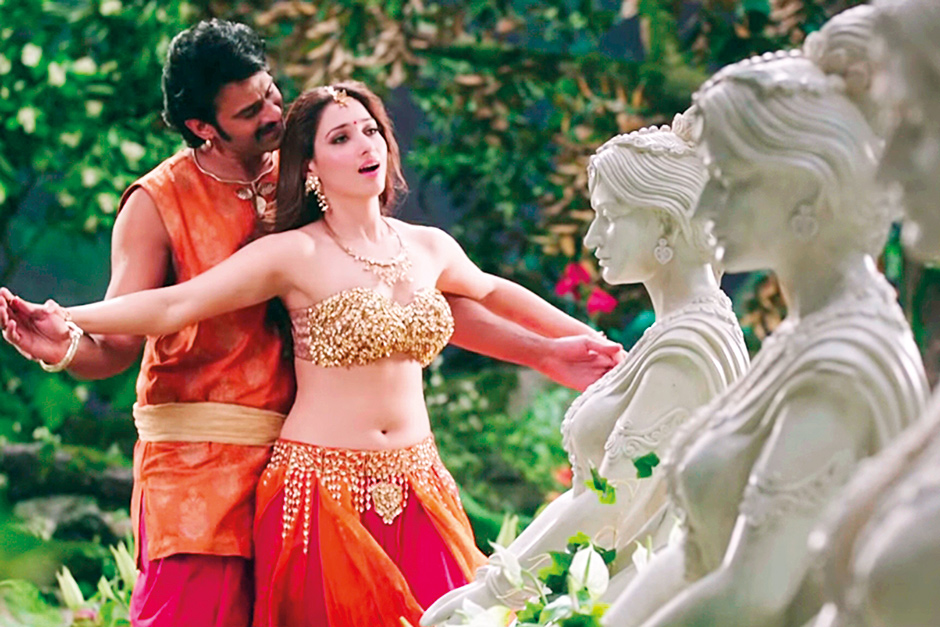








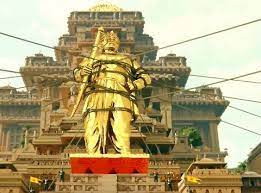


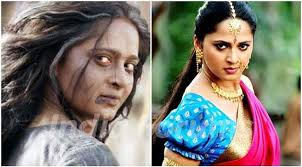






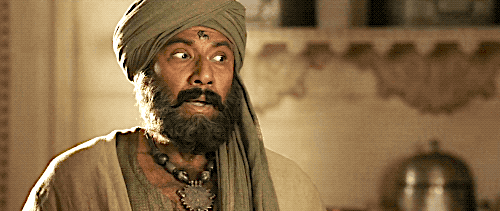

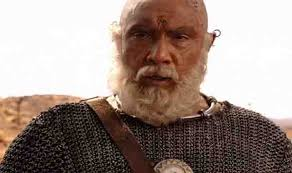

No comments:
Post a Comment